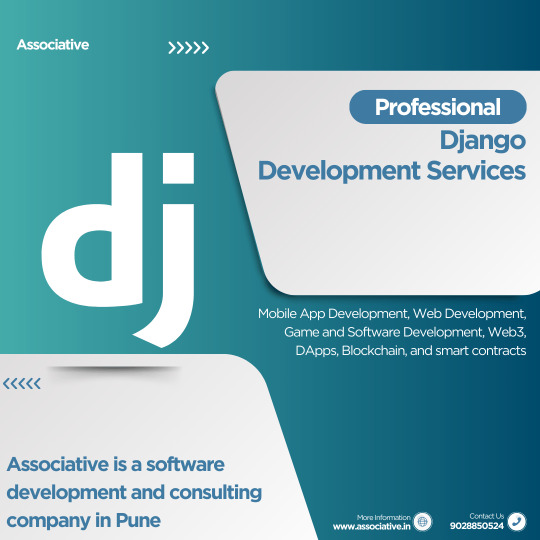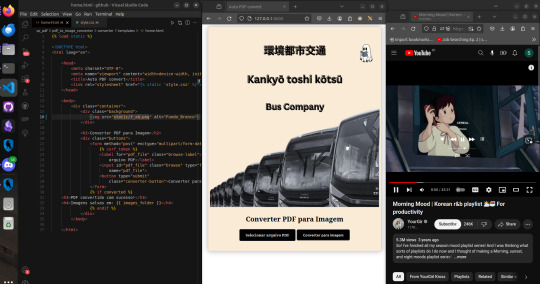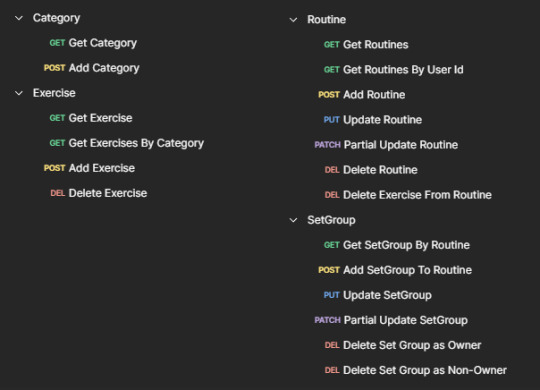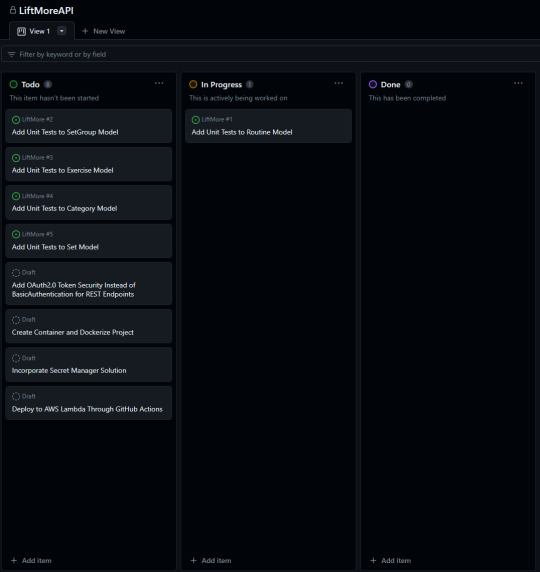#django developers
Explore tagged Tumblr posts
Text
Accelerate Your Web Development with Associative Django Expertise

Django, a powerful Python web framework, is known for its rapid development capabilities and emphasis on clean design. If you’re looking to build scalable, secure, and feature-rich web applications with Django, Associative Django Development Company is your trusted partner.
Why Choose Django?
Django provides numerous advantages for businesses and developers:
Rapid Development: Django’s “batteries included” philosophy streamlines development with built-in tools for common tasks.
Scalability: Django applications excel at handling high-traffic and data-intensive workloads.
Security: Django takes security seriously with robust features to protect against common web vulnerabilities.
Robust Admin Interface: Quickly build an administrative backend for your application, ideal for content management and data manipulation.
Extensive Community: Benefit from Django’s vast developer community, extensive documentation, and an abundance of third-party libraries.
Associative’s Django Mastery
Associative’s experienced Django developers create solutions that leverage the framework’s strengths:
Full-Stack Development: Build complete web solutions, encompassing front-end interfaces, backend logic, and database interaction.
REST API Development: Design and implement RESTful APIs to power dynamic web interfaces and mobile applications.
Third-Party Integration: Seamlessly integrate Django with databases, cloud services, payment gateways, and other external systems.
Customization: Tailor Django’s built-in features and extend its functionality with custom applications.
Maintenance and Support: Provide ongoing support to ensure your Django application’s stability and long-term success.
Why Choose Associative?
Customer Focus: Understanding your objectives is their priority to deliver solutions that align with your business goals.
Proven Expertise: Their extensive portfolio of Django projects demonstrates their deep understanding of the framework.
Best Practices: Associative adheres to Django’s best practices and design principles for maintainable and scalable code.
Amplify Your Django Projects with Associative
If you’re ready to embrace the power of Django for your web development needs, Associative is the ideal partner to help you succeed. Their expertise will streamline your project and ensure a robust, high-performing web application.
0 notes
Text
Django provides a signals framework that allows certain senders to notify a set of receivers when certain actions occur. This can be very useful for decoupling components of your application and keeping your code modular. Django's built-in signals can be used for model events by utilizing the django.db.models.signals module. Here's a step-by-step guide on how to use Django signals for model events
#django#django python#django developers#wagtail cms#django cms#django mongodb#django framework#django software#django framework python#celery with django#django use#django vscode#installing django#pandas django#stackoverflow#jsx#web design#web dev#web development#website#programming#backedn#backend eng#tech#technology#engineering
0 notes
Text
Django provides a signals framework that allows certain senders to notify a set of receivers when certain actions occur. This can be very useful for decoupling components of your application and keeping your code modular. Django's built-in signals can be used for model events by utilizing the django.db.models.signals module. Here's a step-by-step guide on how to use Django signals for model events
#django#django python#django developers#wagtail cms#django cms#django mongodb#django framework#django software#django framework python#celery with django#django use#django vscode#installing django#pandas django#stackoverflow#jsx#web design#web dev#web development#website#programming#backedn#backend eng#tech#technology#engineering
0 notes
Text
Django provides a signals framework that allows certain senders to notify a set of receivers when certain actions occur. This can be very useful for decoupling components of your application and keeping your code modular. Django's built-in signals can be used for model events by utilizing the django.db.models.signals module. Here's a step-by-step guide on how to use Django signals for model events
#django#django python#django developers#wagtail cms#django cms#django mongodb#django framework#django software#django framework python#celery with django#django use#django vscode#installing django#pandas django#stackoverflow#jsx#web design#web dev#web development#website#programming#backedn#backend eng#tech#technology#engineering
0 notes
Text
Django provides a signals framework that allows certain senders to notify a set of receivers when certain actions occur. This can be very useful for decoupling components of your application and keeping your code modular. Django's built-in signals can be used for model events by utilizing the django.db.models.signals module. Here's a step-by-step guide on how to use Django signals for model events
#django#django python#django developers#wagtail cms#django cms#django mongodb#django framework#django software#django framework python#celery with django#django use#django vscode#installing django#pandas django#stackoverflow#jsx#web design#web dev#web development#website#programming#backedn#backend eng#tech#technology#engineering
0 notes
Text
Hire the Best Django Developers: Your Path to Success
Django developers play a pivotal role in the success of web development projects. They are responsible for designing, coding, and maintaining web applications, ensuring they function flawlessly. Without skilled Django developers, your projects may suffer from inefficiencies and technical issues that can hinder your business growth.
The Benefits of Hiring Django Developers
When you hire Django developers, you gain access to a pool of talent that understands the ins and outs of this powerful framework. They bring expertise in Python programming, database management, and web security. With their help, you can create web applications that are not only robust but also scalable and easy to maintain.
Key Qualities to Look for in Django Developers
Technical Proficiency
Django developers should have a strong grasp of Python and a deep understanding of the Django framework. They should be able to write clean and efficient code that adheres to best practices.
Experience and Portfolio
Reviewing a developer's past projects and experience is crucial. Look for developers who have worked on projects similar to yours and have a portfolio that showcases their skills.
Problem-Solving Skills
Django developers often encounter complex challenges. The ability to troubleshoot and find creative solutions is a must.
Where to Find Django Developers
Fulllancers Platforms
Platforms like Upwork and Fulllancer offer a wide range of Django developers. You can find both individual fulllancer and agencies specializing in Django.
0 notes
Text
#Hire Django Developers#Django programmers#Python Django Programmers#Django Developers#hire the best Django developers
0 notes
Text

This one has an interesting story. It was in a place where we shared files through a shared data server locally (localhost only), so there was no network access to use the famous "I love PDF" or software like Adobe to convert and make some changes.
With that in mind, I used the PyPDF library to make a code that changes like converting, splitting, merging, and set it up on the server for people to use. Everyone loved both how the program worked and the crazy aesthetic that I made it and my boss approved. Well, problem solved! And fun too, I must say. And since this is a Studyblr, I have to mention how worthwhile it is to study a library you've never seen before but that seems to do everything you need at that moment. Putting a small project into practice, seeing how people react to it, then studying and improving it in a way that reflects your own growth. That was made with Django Web Framework.
#dark academia#dark art#dark aesthetic#study#study blog#studying#study motivation#study aesthetic#coding#python#django#programming#student life#programmer#software development#software#softwarengineer#softwareengineering#computerscience#studentlife#student#studyblr#studyblr community#screenshot#brazil#brasil
11 notes
·
View notes
Text
Deploying Django Applications to Heroku
Learn how to deploy your Django applications to Heroku with this comprehensive guide. Follow step-by-step instructions to set up, configure, and deploy your app seamlessly.
Introduction Deploying Django applications to Heroku is a streamlined process thanks to Heroku’s powerful platform-as-a-service (PaaS) offerings. Heroku abstracts away much of the infrastructure management, allowing developers to focus on building and deploying their applications. This guide will walk you through the steps to deploy a Django application to Heroku, including setting up the…

View On WordPress
5 notes
·
View notes
Text
LiftMore Update 9.04.2023
I was posting updates on my Medium (see the pinned post), but lately I haven't had time to make a thorough post. Instead, I want to update on a few things in a more informal post here.
API Updates

Finally went through and added all of the endpoints I'll need. There are a few endpoints on this list that I'm still in the process of refining permissions and making more secure.
Unit Testing ...ayup.. I came this far into the project without writing a single unit test. I really do want to strive for best TDD practices, but when there's no code at all in my application, it feels really unsatisfying to start working on tests before my code is capable of doing anything. Moving forward in the project, I will definitely strive to do TDD well.
Security Currently, the API just processes users via Basic Authentication. In this upcoming week, I'm planning on creating an identity server and using that server to issue my own OAuth2.0 tokens. I'm not sure yet how I want to set up my IDP service and OIDC Identity Providers.
Deployments Before moving onto the Front-End for this project, I want to make sure that my app is as secure and robust as possible. For this, I want to create 3 different environments (Development, Test, and Production), use a secret manager to inject secrets into the application, and have all of my deployments automated with GitHub Actions. In addition to all this, I want to make sure my application is set up properly between GitHub Actions and AWS so that I can manage dashboards and collect usage/cost information before having any users.
Finally, I'm happy to say that I've acquired the domain name "liftmore.app". After I get through some of the things I mentioned here, I'll push out a landing page and more information of LiftMore from a user perspective in case anybody wants to use it :)
Lastly, little brief preview of my Project board in GitHub at the moment.

8 notes
·
View notes
Text
Hire Django Developers Remotely: What You Need to Know

Even for technical positions, working remotely has become commonplace in today's digitally first society. You are not the only startup or tech company looking to hire Django developers remotely; many are using remote teams to create reliable web apps. The Python-based web framework Django is well-known for its security, scalability, and speed, which makes it perfect for creating anything from straightforward webpages to intricate business solutions.
But if you don't know what to search for, it can be difficult to find the best remote Django developer. Here's a detailed guide to help you choose the best remote workers and make sure your web project is successful.
Build Scalable Web Applications with Expert Django Developers from Anywhere
Understand why Django is the best framework for your project before beginning the hiring process. With Django, developers can rapidly and efficiently design complex, database-driven websites using fewer lines of code. It is ideal for creating scalable and secure applications because of its integrated features, which include admin panels, URL routing, and authentication.
Hiring Django developers means hiring someone who can take advantage of these built-in features to save down on development time while maintaining the security and functionality of your app.
Where to Find Django Developers
The first step in hiring Django developers remotely is to find applicants on reliable platforms. Here are several possibilities:
Uplers: An end-to-end AI-powered hiring platform with a 3M+ network that uses AI and human intelligence to connect you with the top 3.5% AI-vetted professionals.
Upwork: You may locate Django specialists with different levels of experience on Upwork, a freelance marketplace. Perfect for one-time or short-term initiatives.
Toptal: Renowned for offering top-tier talent, Toptal assists you in hiring remote developers from a pool of candidates who have been thoroughly screened to guarantee excellence.
LinkedIn: An excellent tool for advertising job openings and connecting with Django experts that possess the necessary abilities.
GitHub: Seek out developers who are actively involved in Django projects that are open-source. You can learn more about their abilities and enthusiasm for the technology from this.
Look for Expertise Beyond Django
A proficient Django developer needs to be familiar with supplementary tools and technologies, even if Django is the foundational framework. When hiring, take into account the following:
Proficiency in front-end technologies such as HTML, CSS, JavaScript, and frameworks like React or Angular can be useful, even though Django manages the back-end.
Database expertise: Relational databases such as PostgreSQL and MySQL are easily integrated with Django. Your developer should be proficient in query optimization, migrations, and database modelling.
Version control and Continuous Integration/Continuous Deployment (CI/CD): Your developer will be able to work together effectively and produce code without any problems if they are familiar with Git, GitHub, and CI/CD procedures.
Communication and Collaboration Are Key
When you hire remote developers communication is of the essence. Finding engineers who are proactive, well-organized, and at ease with collaboration platforms like Slack, Zoom, and Trello is crucial because you will be working across time zones. During the interview process, evaluate their written communication abilities because in remote teams, effective communication is essential to preventing misunderstandings.
Make sure the developers you choose have knowledge of agile processes, time management tools, and remote work. Establishing a robust communication system is essential for tech organizations to maintain team alignment and guarantee seamless project execution.
Assessing Cultural Fit and Flexibility
Although technical proficiency is crucial, cultural fit should also be considered. Make sure the Django developers you recruit remotely have the same values as your team and are able to function effectively in a distant setting. Enquire about their feedback management strategy, time zone flexibility, and collaboration style.
You may need to scale your crew as your business expands. To keep your projects going, you need to find a developer who is flexible and willing to work with you for a long time.
Summing Up
Hiring Django developers remotely provides access to a larger talent pool, flexibility, and cost savings. You may create a team that produces scalable, high-quality web apps by knowing the particular requirements of your project and seeking developers with the necessary technical know-how, remote work experience, and effective communication skills.
Whether you need to hire backend developers for specific tasks or for full-stack development, remote hiring gives tech organizations the opportunity to scale efficiently and access global talent.
0 notes
Text
Adding authentication to Django REST Framework (DRF) views involves configuring authentication classes in your DRF settings. DRF provides a variety of authentication classes that you can choose from based on your project's requirements. Here's a general guide on how to add authentication to DRF views
#django#django python#django developers#wagtail cms#django cms#django mongodb#django framework#django software#django framework python#celery with django#django use#django vscode#installing django#pandas django#stackoverflow#jsx#web design#web dev#web development#website#programming#backedn#backend eng#tech#technology#engineering
0 notes
Text
Adding authentication to Django REST Framework (DRF) views involves configuring authentication classes in your DRF settings. DRF provides a variety of authentication classes that you can choose from based on your project's requirements. Here's a general guide on how to add authentication to DRF views
#django#django python#django developers#wagtail cms#django cms#django mongodb#django framework#django software#django framework python#celery with django#django use#django vscode#installing django#pandas django#stackoverflow#jsx#web design#web dev#web development#website#programming#backedn#backend eng#tech#technology#engineering
0 notes
Text
Adding authentication to Django REST Framework (DRF) views involves configuring authentication classes in your DRF settings. DRF provides a variety of authentication classes that you can choose from based on your project's requirements. Here's a general guide on how to add authentication to DRF views
#django#django python#django developers#wagtail cms#django cms#django mongodb#django framework#django software#django framework python#celery with django#django use#django vscode#installing django#pandas django#stackoverflow#jsx#web design#web dev#web development#website#programming#backedn#backend eng#tech#technology#engineering
0 notes
Text
Adding authentication to Django REST Framework (DRF) views involves configuring authentication classes in your DRF settings. DRF provides a variety of authentication classes that you can choose from based on your project's requirements. Here's a general guide on how to add authentication to DRF views
#django#django python#django developers#wagtail cms#django cms#django mongodb#django framework#django software#django framework python#celery with django#django use#django vscode#installing django#pandas django#stackoverflow#jsx#web design#web dev#web development#website#programming#backedn#backend eng#tech#technology#engineering
0 notes
Text
Hot Deal | 2025 Django Free Course | From zero to HERO! https://www.udemy.com/course/django-5-build-a-complete-website-from-scratch-to-deploy/?couponCode=8D395425D0CE08F83880
0 notes